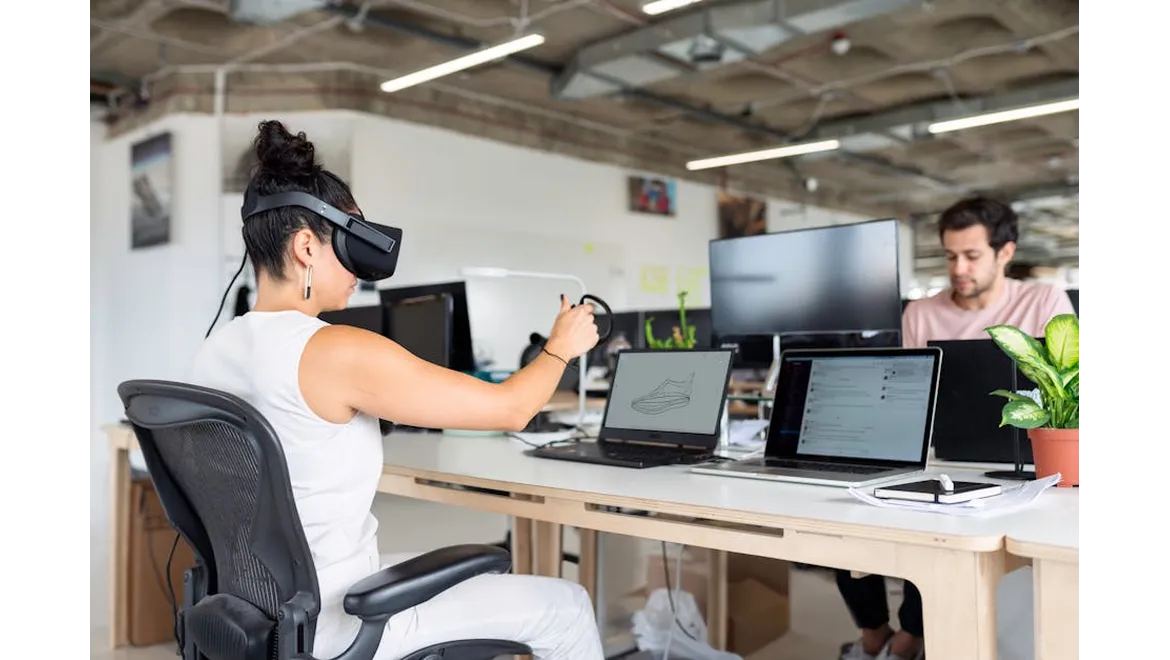The real estate sector in the United Arab Emirates (UAE) is experiencing a profound transformation fueled by advancements in digital technology. Traditional marketing methods are steadily being replaced by more sophisticated digital strategies, allowing real estate businesses to navigate the complexities of the modern marketplace more effectively. This article delves into the multifaceted digital transformation, focusing on key areas such as web development, SEO, social media marketing, UI/UX design, PPC advertising, and the role of emerging technologies like blockchain and AI in revolutionizing the industry.
In the digital era, a website often serves as the first point of interaction between a business and its potential customers. Therefore, high-quality web development is crucial for creating a strong first impression. Companies like AUN Digital are setting new standards in Dubai by offering functional, responsive, and visually appealing websites that not only attract visitors but also encourage them to take action. These highly responsive and fast-loading websites significantly enhance user experience and drive conversions, solidifying the digital facade of real estate businesses.
Search Engine Optimization (SEO) is another critical component of digital marketing, essential for enhancing online visibility. Advanced SEO techniques, such as keyword optimization, backlinking, and content creation, are employed to attract more customers and increase brand awareness. Google My Business (GMB) profiles further augment this by providing significant information about a business, convincing potential clients to reach out. Collaborations with local news outlets, businesses, and influencers for backlinks enhance credibility and authority, boosting local rankings and trust among the target audience.
Social media marketing has emerged as a powerful tool for engaging with younger audiences. Creative and engaging social media strategies enable real estate businesses to connect with their target audience across various platforms. Techniques like 360-degree virtual property tours and live streaming of open houses have proven effective in driving meaningful interactions and converting prospects into loyal customers. Partnerships with real estate influencers and leveraging user-generated content further amplify the resonance with potential customers, making social media an indispensable component of modern marketing.
User Interface (UI) and User Experience (UX) design play a crucial role in creating a lasting impact on the target audience. A well-designed UI/UX experience instantly captures the user’s attention, encouraging them to explore further. Elements such as consistent designs, pleasing icons, high functionality, and intuitiveness are key to enhancing user satisfaction. Continuous improvements and necessary updates are made to keep up with evolving trends, ensuring that users spend more time on the website, thereby reducing bounce rates and increasing conversion opportunities.
Pay-Per-Click (PPC) advertising is a powerful tool for attracting a target audience. Strategic PPC campaigns enable real estate businesses to target high-intent audiences cost-effectively. By bidding on relevant keywords, businesses can ensure that their website ranks at the top of search results, attracting more prospects. Localization through specific keywords can significantly boost local engagement, making PPC an essential component of digital marketing strategies.
Digital platforms also play a crucial role in the real estate sector. Online portals, such as the one launched by Sheikh Hamdan, the Crown Prince of Dubai, offer real estate players a comprehensive picture of the industry’s growth and potential future scenarios. These platforms use AI to create real estate models, enabling stakeholders to evaluate the profitability of projects before their inception. Insights generated by smart data analysis aid in making informed decisions and data-driven policy-making, thereby strengthening the real estate sector.
Blockchain technology has further revolutionized the real estate sector by enabling properties to be sold as crypto tokens. This innovation has opened new doors for investments and transactions, making the real estate market more accessible and transparent. Platforms that allow investors to buy stakes in real estate for as low as AED5000 have democratized the investment process, attracting a broader range of investors and creating a more inclusive market environment.
The digital transformation of the real estate sector in the UAE is a comprehensive process, encompassing web development, SEO, social media marketing, UI/UX design, PPC advertising, digital platforms, and blockchain technology. These advancements are enabling real estate businesses to enhance their online presence, engage with their target audience, and make informed decisions. As the digital landscape continues to evolve, real estate businesses that embrace these innovations will be well-positioned to thrive in the competitive market.
The real estate sector in the UAE stands on the brink of a digital revolution. By leveraging advanced digital solutions, businesses can enhance their online presence, engage with their target audience, and make informed decisions. The future of real estate in the UAE lies in the successful integration of these digital innovations, paving the way for a more efficient, transparent, and accessible market.











